Business ethics
“It is a form of applied science that examines ethical principles and moral problems that arise in a business environment” (Fraedrich 23).
General business ethics include:
- Ethics of finance.
- Ethics of human resource management.
- Ethics of sales and marketing.
- Ethics of production among others.
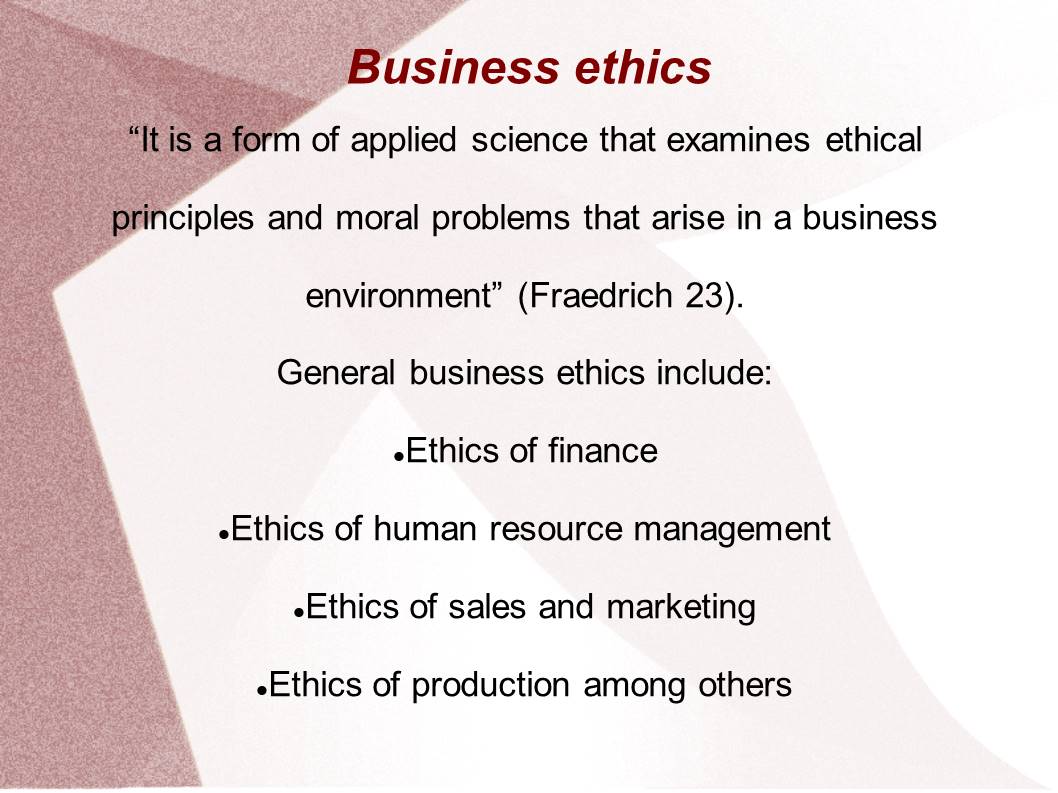
Impacts of human resources on stakeholders
“Human resource management (HRM) as a functional domain has an effect on stakeholders” (Pinnington 34).
HRM practices affect performance and absenteeism.
Productivity is influenced by HRM.
Employees are an important resource in meeting a business’ goals, and their management matters.
Poor HRM practices mean a bad relationship between different stakeholders.
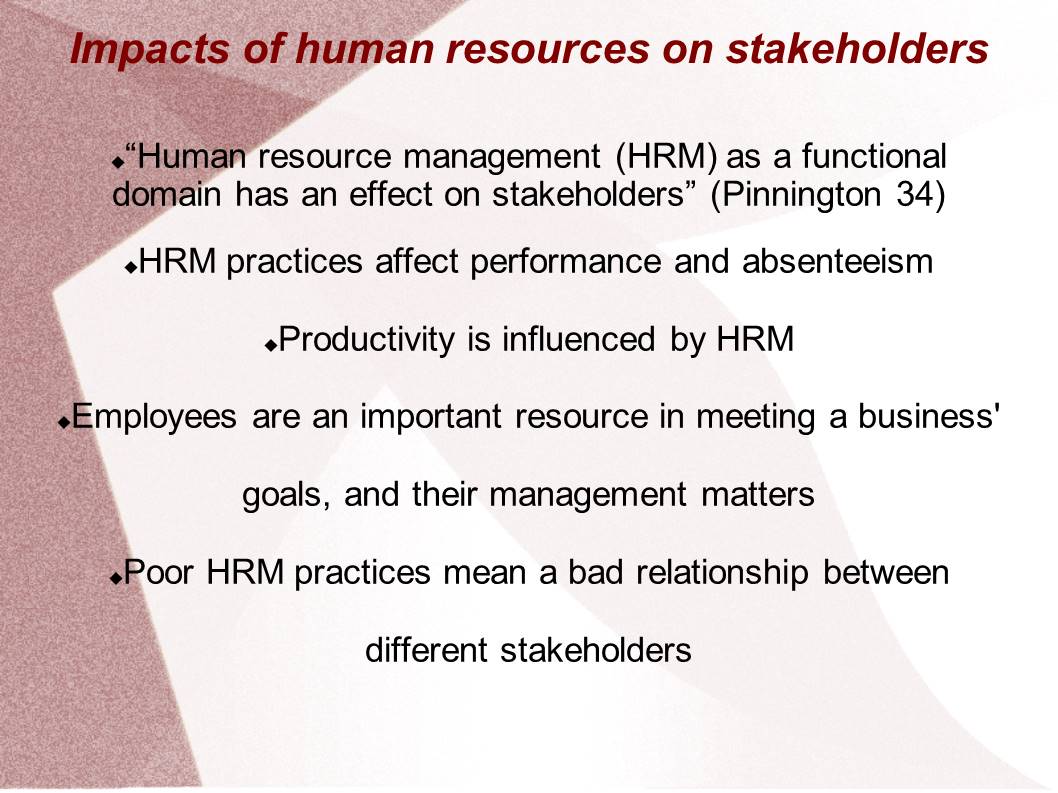
Legal regulations related to HR
Ethics and legal regulations in employment dictate that:
- Discrimination must be prohibited.
- Employees’ rights must be protected.
- Employees must have a right to privacy.
- Payment must be in accordance with comparable worth (Geara 213).
- Employees must be assured of safety and occupational health.
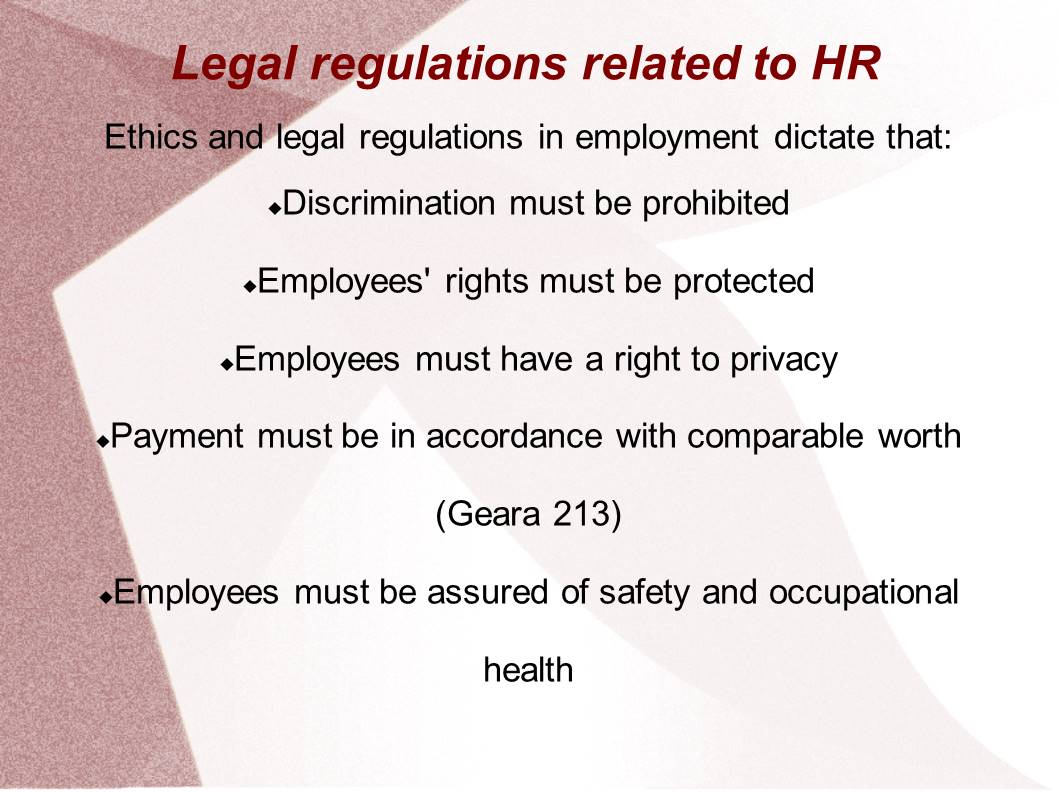
Impacts of marketing on stakeholders
The relationship between marketing and stakeholders is through:
- Stakeholders’ satisfaction.
- Increased performance capabilities through marketing (Cruz-Ros 209).
- Marketing improves customer satisfaction.
- Marketing improves non-financial indicators (Meiners 10).
- Marketing improves employee satisfaction.
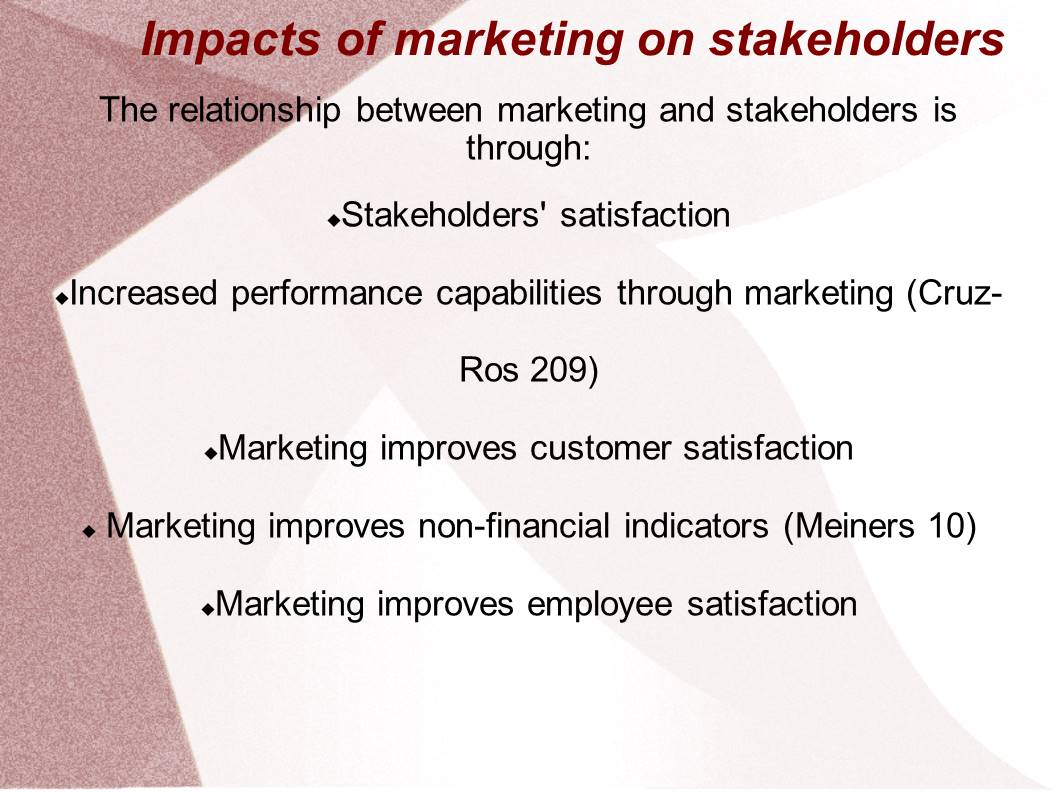
Legal regulations related to marketing
“Ethics and regulation dictate principles by which marketers ought to act” (Schlegelmilch 11). They dictate that:
- Consumers must be protected from dangerous products.
- Marketers must be transparent about their products.
- Products must be made through fair and legal labor.
- Ingredients used in a product must be revealed.
- Products must have appropriate labeling and warnings.
- Marketers must avoid unethical business tactics.
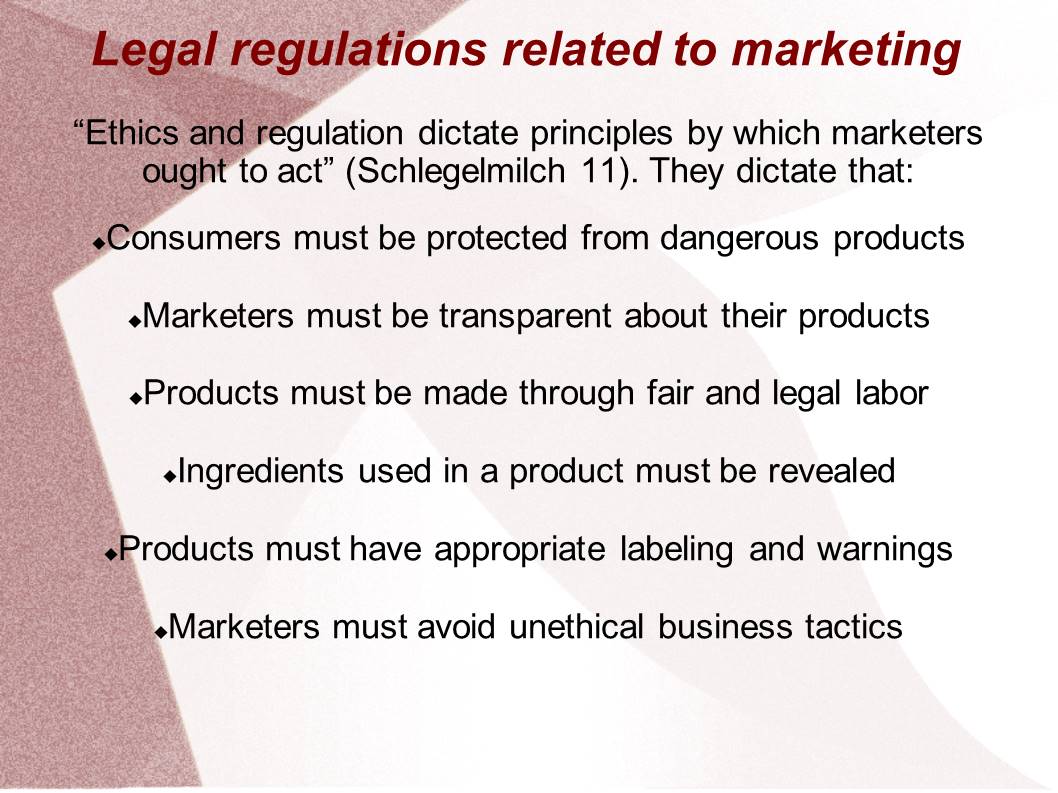
Impacts of accounting on stakeholders
According to Leach, “accounting is the universal language of business and figure” (46).
Proper accounting maximizes stakeholders’ wealth.
Accounting affects supply of goods and services.
Proper accounting ensures timely payment of workers.
A well established accounting system builds a business’ reputation and credit.

Legal regulations related to accounting
Regulations related to finance dictate that:
- Businesses maintain honesty and fairness.
- They must open up their financial systems to stakeholders.
- They stay away from criminal manipulation of records.
- They keep off bribery and kickbacks among other unfair forms of manipulation (Belverd 112).
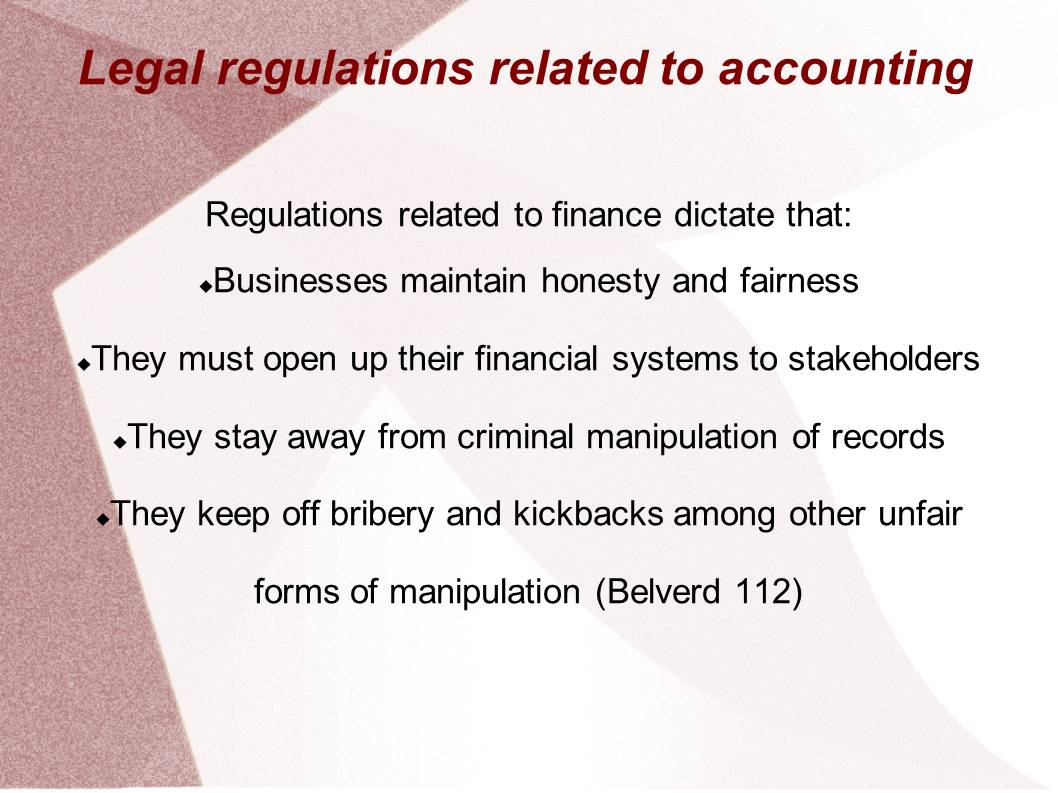
Works cited
Belverd, Susan. Principles of Accounting. Boston: Houghton Mifflin, 2008. Print.
Cruz-Ros, Sonia. “Marketing Capabilities, Stakeholders’ Satisfaction, and Performance.” Service Business 4.3 (2009): 209-223. Print.
Fraedrich, John. Business Ethics: Ethical Decision Making. Mason: Cengage Learning, 2010. Print.
Geara, Edgar. Implementation and Consumption of HRM: Stakeholders Differences, 2006. Web.
Leach, Harris. Cost Accounting: Principles and Practice. New York: The Ronald Press Company, 2008. Print.
Meiners, Rogers. The Legal Environment of Business. Mason, OH: South Western Publishers, 2006. Print.
Pinnington, Ashly. Human Resource Management: Ethics and Employment. Oxford: Oxford University Press, 2007. Print.
Schlegelmilch, Bodo. Marketing Ethics: An International Perspective. London: Thomson Business Press, 2004. Print.